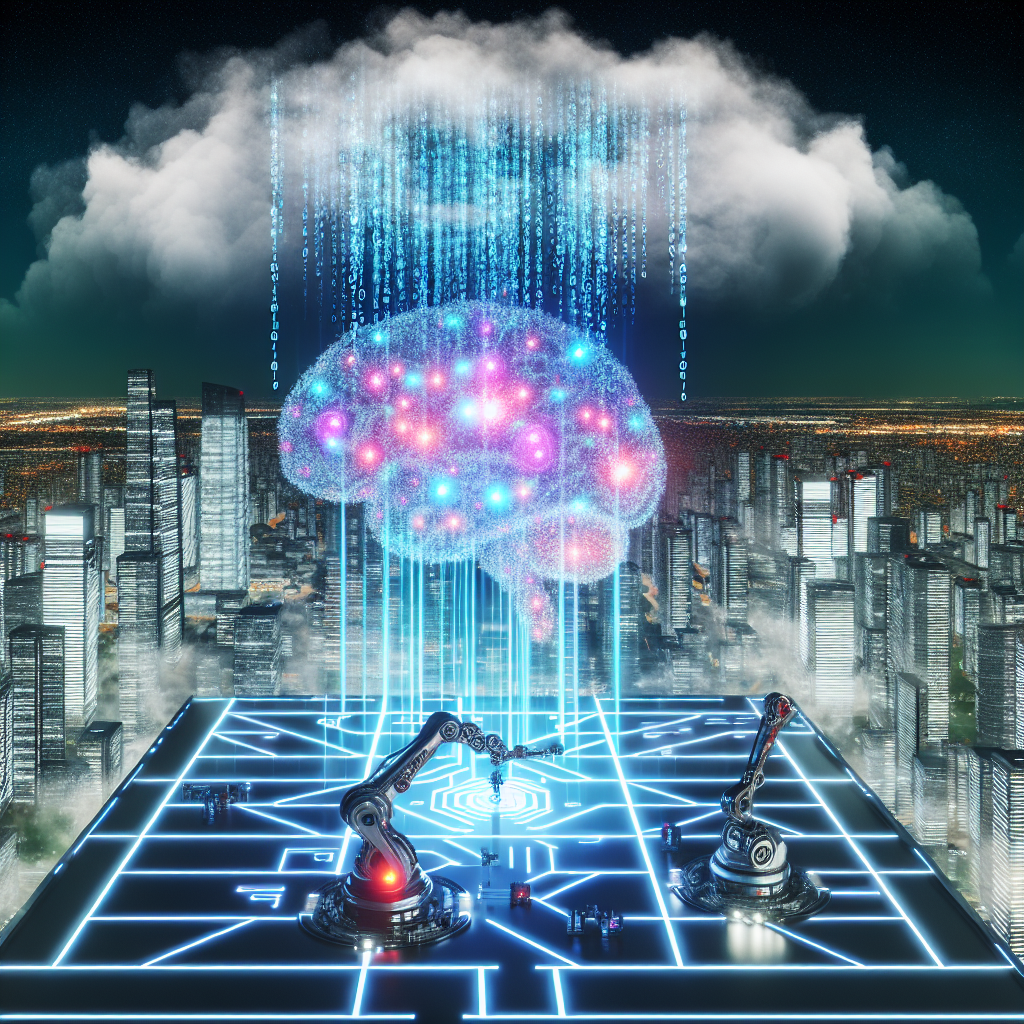Welcome! You’re about to dive into a fascinating exploration of the AI revolution and what it means for our future, particularly in the realm of intelligent automation. Buckle up; it’s going to be an exciting ride!
The Rise of Artificial Intelligence
Artificial Intelligence (AI) has become a buzzword today, but it’s more than just a trend; it’s a transformation. Just think back a few decades — we had computers that could barely run a word processor! Fast forward to today, and we’re harnessing AI for everything from virtual assistants like Siri to advanced machine learning algorithms.
What Is Intelligent Automation?
Intelligent automation blends AI with automation technologies to enhance processes and tasks. Imagine a robot that doesn’t just perform a task mindlessly but learns how to do it better over time. That’s the magic of intelligent automation! It allows machines to mimic human-like decision-making without the constant need for human intervention.
A Brief History of Automation
Before we jump into what’s next, it’s essential to understand where we’ve been. The automation journey began with simple tasks — think conveyor belts in factories — and steadily marched toward more complex processes. Today, intelligent automation has arrived to swoop in and refine those processes further.
Key Technologies Driving Intelligent Automation
1. Machine Learning (ML)
Here’s where the "intelligence" kicks in. Machine learning allows systems to improve from experience. It’s like teaching a child how to ride a bike. The more they practice, the better they get!
2. Natural Language Processing (NLP)
Have you ever chatted with a customer service bot? That’s NLP in action! It allows machines to understand and respond to human language more intuitively, creating a smoother interaction.
3. Robotic Process Automation (RPA)
If you have repetitive tasks that drain your energy, RPA is like that friend who’s always willing to help you move boxes. It automates mundane tasks efficiently, freeing up your time for more creative pursuits.
The Benefits of Intelligent Automation
The perks of intelligent automation are almost endless. You might ask, "But what exactly do we gain from this?" Well, here’s a breakdown:
1. Increased Efficiency
Imagine being able to complete a project in half the time because a machine can handle the repetitive tasks. Efficiency isn’t just a goal; it’s a game-changer!
2. Reduced Errors
Humans make mistakes (we’re only human, after all!). Intelligent automation significantly lowers the chances of errors, especially in data handling.
3. Enhanced Customer Experience
A seamless customer experience is vital in today’s market. How can businesses achieve this? Intelligent automation helps deliver instant responses and personalized interactions, making customers feel valued.
4. Cost Savings
By automating tasks, businesses save money on labor and operational costs. Think about it: fewer errors, increased productivity, and happy customers all contribute to a healthier bottom line.
Challenges of Intelligent Automation
While the benefits are appealing, intelligent automation isn’t without its hurdles.
1. Integration Issues
Integrating new tech into existing systems can feel like trying to fit a square peg in a round hole. It often requires time and resources to ensure a smooth transition.
2. Job Displacement Fears
The big question on many folks’ minds is: “Will robots take our jobs?” While some roles may change, the focus should shift to the new opportunities created alongside automation.
3. Security Concerns
As machines become more intelligent, the risk of cyber threats increases. Keeping data secure is paramount; without it, all other benefits fall flat.
What’s Next for Intelligent Automation?
With the foundational technologies firmly established, let’s look ahead. What can we expect in the coming years?
1. Greater Use of AI Ethics
As our world becomes increasingly automated, ethical considerations are paramount. Expect to see more discussions and regulations surrounding AI ethics to ensure responsible and fair use.
2. Expansion into New Industries
Intelligent automation will gradually infiltrate sectors we might not expect, from agriculture to healthcare. It’s like a wave rising; it’s coming, and it’s bringing change!
3. Hyper-Personalization
Gone are the days of one-size-fits-all services. In the future, AI will allow for hyper-personalized experiences. It’s like having a tailor-made suit instead of an off-the-rack version!
4. Collaboration Between Humans and Bots
We won’t be living in a dystopian world ruled by machines. Instead, think of the future as a collaboration where humans and AI work hand in hand, like a well-oiled machine!
5. Increased Integration with IoT
The Internet of Things (IoT) will further enhance intelligent automation. Imagine your fridge ordering groceries when you’re running low — that’s intelligent automation meeting IoT!
Conclusion
The AI revolution has already begun, paving the way for intelligent automation that’s set to change our world. While the challenges are real, so are the opportunities. Imagine a future where machines assist us, allowing more creativity and innovation. That’s not just a dream — it’s on the horizon!
FAQs
1. What is intelligent automation?
Intelligent automation combines AI and automation technologies to perform tasks efficiently, mimicking human-like decision-making.
2. How can businesses benefit from intelligent automation?
Businesses can experience increased efficiency, reduced errors, cost savings, and enhanced customer experiences through intelligent automation.
3. Are there any drawbacks to intelligent automation?
Challenges include integration issues, fears of job displacement, and potential security risks.
4. What role does AI ethics play in intelligent automation?
As automation increases, ensuring responsible and ethical use of AI is crucial to maintain public trust and safety.
5. What future trends can we expect in intelligent automation?
Future trends include hyper-personalization, greater use of AI ethics, expansion into new industries, and enhanced collaboration between humans and machines.
